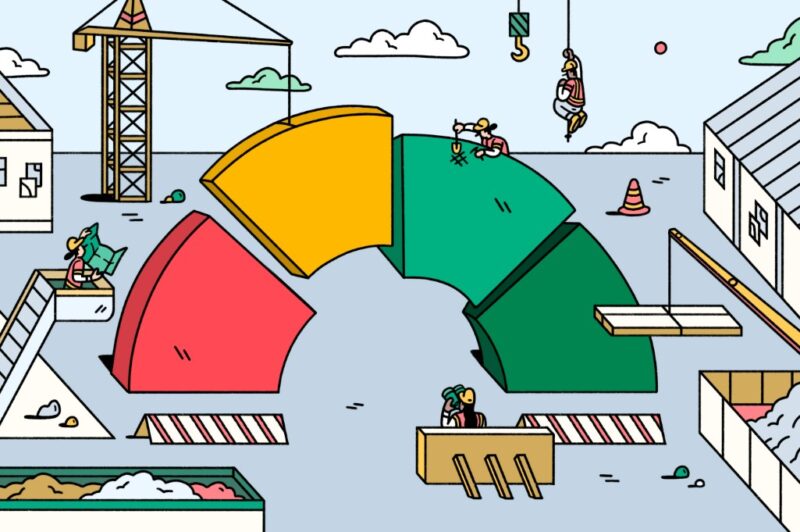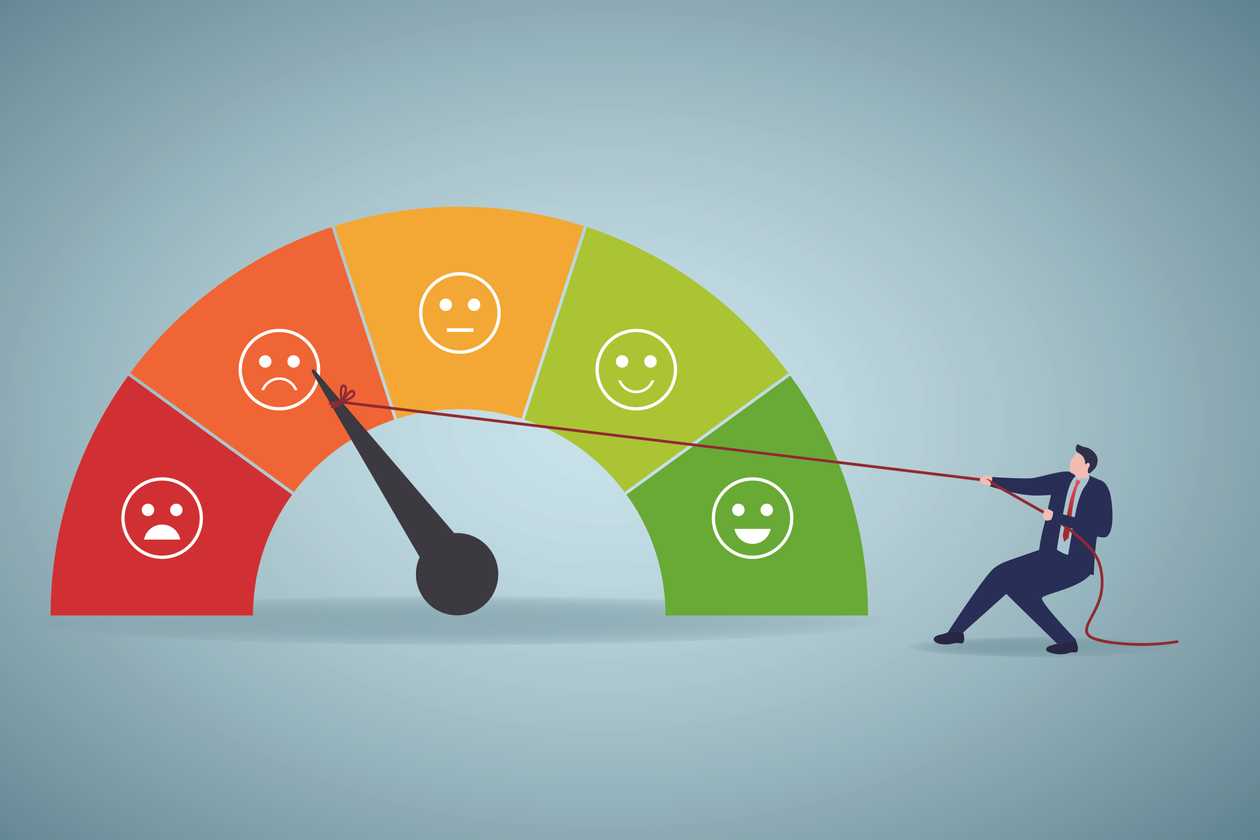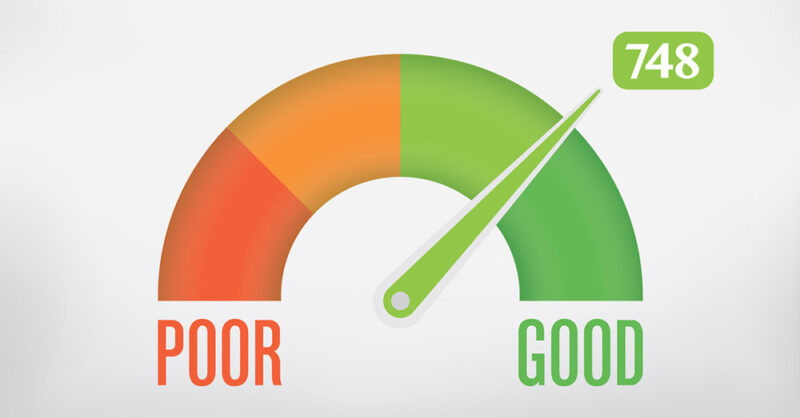Did you know that it typically takes three to six months to establish a credit score if you have no credit history? Within a year, you can have a relatively decent score. However, building a good credit score takes years of healthy financial habits. FICO considers a credit score of 700 to be “good.”
So, how long does it take to get a 700 credit score from zero?
If you’re starting with no credit history and aiming for a 700 credit score, it can take several years of diligent credit management to achieve this milestone. It’s a journey that requires patience, consistency, and a sound financial strategy.
Key Takeaways:
- Building a credit score from scratch takes time and effort.
- Establishing a credit score typically takes three to six months with no credit history.
- It takes years of healthy financial habits to achieve a good credit score of 700.
- Avoid applying for premium credit cards until your score is at least 700.
- You can expedite credit building with strategies like having a cosigner, opening a secured credit card, piggybacking as an authorized user, opening a credit builder loan, or using credit-boosting services.
How Long Does It Take To Build Credit From Scratch?

Building credit from scratch can be a challenging but rewarding journey. The time it takes to establish a credit score depends on various factors, such as your financial habits and the credit-building strategies you employ.
If you have no credit history, it typically takes around three to six months to establish a credit score. During this time, you can start building a positive credit history by implementing credit-building methods. These methods include:
- Getting a cosigner for a loan
- Opening a secured credit card
- Piggybacking as an authorized user
- Opening a credit builder loan
- Using credit boosting services
Employing these credit-building strategies can help you establish a credit history and have a foundation for a good credit score in the future. However, building excellent credit takes time and commitment.
To achieve a score of 700 or higher, it requires consistent healthy financial habits over the long term. Some credit-building methods may yield quicker results, but building a solid credit score should be a gradual process.
By making payments on time, keeping balances low, and avoiding excessive credit applications, you can steadily improve your credit score. The key is to establish good financial habits and maintain them over an extended period.
Remember, building credit is not a sprint—it’s a marathon. Patience and persistence are essential. With time and responsible financial practices, you can achieve a strong credit score and open doors to better loan rates and opportunities.
Tips to Improve Your Credit Score from 500 to 700
Improving your credit score can seem like a daunting task, especially when starting from a score of 500. However, with patience and financial discipline, it is possible to raise your credit score to 700 or higher. Here are some tips to help you on your journey to credit score improvement:
- Make payments on time and in full ─ Your payment history is a significant factor in determining your credit score. By consistently making your payments on time and in full, you demonstrate responsible financial behavior.
- Keep credit utilization below 30% ─ Credit utilization refers to the percentage of your available credit that you are currently using. It is advisable to keep your credit utilization below 30% by avoiding maxing out your credit cards. This shows lenders that you are using credit responsibly.
- Avoid applying for multiple loans ─ Frequent loan applications can negatively impact your credit score. Instead, focus on managing your spending and avoiding unnecessary debt. Prioritize your financial commitments and only take on new credit when necessary.
- Review your credit report ─ Regularly check your credit report for errors or inaccuracies. If you identify any discrepancies, such as incorrect account balances or late payments, take steps to dispute and correct them. A clean and accurate credit report can contribute to an improved credit score.
- Become an authorized user ─ Consider becoming an authorized user on someone else’s credit card. If the primary cardholder has a good credit history and practices responsible credit habits, being an authorized user can help boost your credit score.
- Pay off collections ─ If possible, pay off any outstanding collections on your credit report. Settling these accounts can have a positive effect on your credit score and demonstrate your commitment to financial responsibility.
- Utilize credit builder loans or credit boosting services ─ Credit builder loans and credit boosting services can help establish a positive credit history and build your score over time. These tools are specifically designed for individuals looking to improve their credit.
By implementing these credit score improvement tips, you can work towards raising your credit score from 500 to 700. Remember, improving your credit score takes time, but the rewards of a higher score, such as better loan rates and terms, make the effort worthwhile.
Example Strategies for Credit Score Improvement

“When it comes to improving your credit score, consistency is key. By following these strategies and staying committed to responsible financial habits, you can gradually raise your credit score over time.” – Erica Johnson, Financial Advisor
| Strategies | Impact on Credit Score |
|---|---|
| Make payments on time and in full | Positive |
| Keep credit utilization below 30% | Positive |
| Avoid applying for multiple loans | Positive |
| Review and dispute credit report errors | Positive |
| Become an authorized user | Positive |
| Pay off collections | Positive |
| Utilize credit builder loans or credit boosting services | Positive |
Conclusion
Building and improving credit takes time and commitment. While it may take three to six months to establish a credit score from scratch, achieving a score of 700 or higher requires years of consistent healthy financial habits. By making payments on time, keeping balances low, and avoiding common credit mistakes, you can gradually raise your credit score.
It’s important to practice patience and avoid getting discouraged along the way. Building credit is a journey that requires perseverance. Remember that a good credit score can open doors to better loan rates and terms, making all the effort worth it in the end.
So, whether you’re just starting to build credit or working towards improving it, remember to prioritize financial responsibility. Stay focused on making positive changes and staying on track with your credit building timeline. With time, dedication, and smart financial choices, you can achieve a 700 credit score and enjoy the benefits of a strong credit profile.
FAQ
How long does it take to build credit from scratch?
It generally takes three to six months to establish a credit score if you have no credit history. However, building a good credit score takes years of healthy financial habits.
What are some methods to build credit from scratch?
You can build credit from scratch by getting a cosigner for a loan, opening a secured credit card, piggybacking as an authorized user, opening a credit builder loan, or using credit boosting services.
How can I improve my credit score from 500 to 700?
To improve your credit score, focus on making payments on time, keeping balances low, avoiding multiple loan applications, reviewing your credit report for errors, becoming an authorized user on someone else’s credit card, paying off collections if possible, and utilizing credit builder loans or credit boosting services.
How long does it take to achieve a 700 credit score from zero?
Building and improving credit takes time and commitment. While it may take three to six months to establish a credit score from scratch, achieving a score of 700 or higher requires years of consistent healthy financial habits.
What are the benefits of achieving a good credit score?
A good credit score can open doors to better loan rates and terms, making it easier for you to secure loans for major purchases such as a home or a car.
